
Jazz Without Borders:
A Fulbright Journey to Chile
Fulbright Specialist in American Studies 2013
In the summer of 2013, as a Fulbright Senior Specialist in American Studies, I embarked on an enriching 42-day journey to Santiago, Chile. Hosted by the ProJazz Professional Institute, this assignment blended my lifelong passion for jazz with the mission of cultural exchange, education, and collaboration.
Arriving in Santiago
Stepping into the Fulbright-Chile offices, I was greeted by Antonio Campana, the inspiring director whose warm professionalism set the tone. Alongside him were his American intern and Alicia Pedroso, my dynamic liaison, and Assistant Director of ProJazz Institute.
Their enthusiasm and hospitality immediately made me feel at home, as if the connections we were about to form were meant to be.
Santiago greeted me with its vibrant cultural pulse, a city where the Andes framed the skyline, and the rhythm of life mirrored the improvisation of jazz itself.

ProJazz: A Hub of Aspiring Talent
The heart of my work centered around ProJazz Professional Institute, where I led lectures, seminars, and workshops for 3rd and 4th-year students. My goal was to bridge cultures through music, teaching modern jazz improvisation and the intricacies of contemporary composition. Armed with printed materials, detailed examples, and the experience of a seasoned jazz artist, I sought to inspire students hungry for deeper understanding.
A Concert with Francisca Ramírez
A vibrant fusion of cultures takes the stage in Santiago, Chile, as Francisca Ramírez’s stunning vocals soar alongside an all-Chilean band, joined by guest Texas State colleague Russell Haight on tenor sax. This unforgettable concert, presented free of charge by the Projazz Professional Institute and the Fulbright Chile Commission, showcases the power of jazz to bridge continents and connect hearts through music.
Future Plans and Lasting Connections
By the end of my visit, discussions were already underway for a return trip. Both Fulbright-Chile and ProJazz expressed interest in continuing our collaboration, potentially within a two-year window. The shared vision of expanding our exchange program to link Texas State University and ProJazz signaled that this was just the beginning of a long and meaningful partnership.
A Melodic Journey: My 2016 Return as a Fulbright Senior Specialist
A Fulbright Journey: Teaching, Performing, and Inspiring in Chile
On August 17, 2016, at Universitat Centrál in Santiago, Chile, I returned as a Fulbright Senior Specialist in American Studies: Jazz, embarking on a captivating journey filled with concerts across the country. Highlights included a powerful reunion performance with vocalist Francisca Ramírez and dynamic collaborations with Texas State colleagues Russell Haight on tenor sax and Utah Hamrick on bass, celebrating the unifying spirit of jazz.
Academic Coordinator Ignacio Arriagada interprets my lessons, bringing them to life for a vibrant and engaged class.
Beyond the Classroom
ProJazz wasn't my only stage. I ventured into cultural diplomacy, strengthening ties between Chile and the United States. My discussions with ProJazz’s representatives Alicia Pedroza, Academic Coordinator Ignacio Arriagada, and Rector George Abufhele paved the way for future collaboration. The warm support of my host institution and the proximity of their facilities to my accommodations made the experience seamless and enjoyable.
"A Night of Texas Jazz"
Collaborating with my Texas State University colleague, Dr. Russell Haight, we brought
"A Night of Texas Jazz" to Santiago’s music community. The city-wide public concert blended rich American jazz traditions with Chilean enthusiasm,
creating a memorable night that underscored the universality of music
Fulbright International Arts
In August 2016, the Fulbright International Arts selection panel convened in Santiago, Chile, to evaluate over 170 applicants for Master’s Scholarships in fine arts.
The panel included Hank Hehmsoth, U.S. Ambassador Michael A. Hammer, Antonio Campaña (Director of Fulbright-Chile), and a Fulbright program representative. Three outstanding students were awarded scholarships to pursue master’s degrees in the U.S.


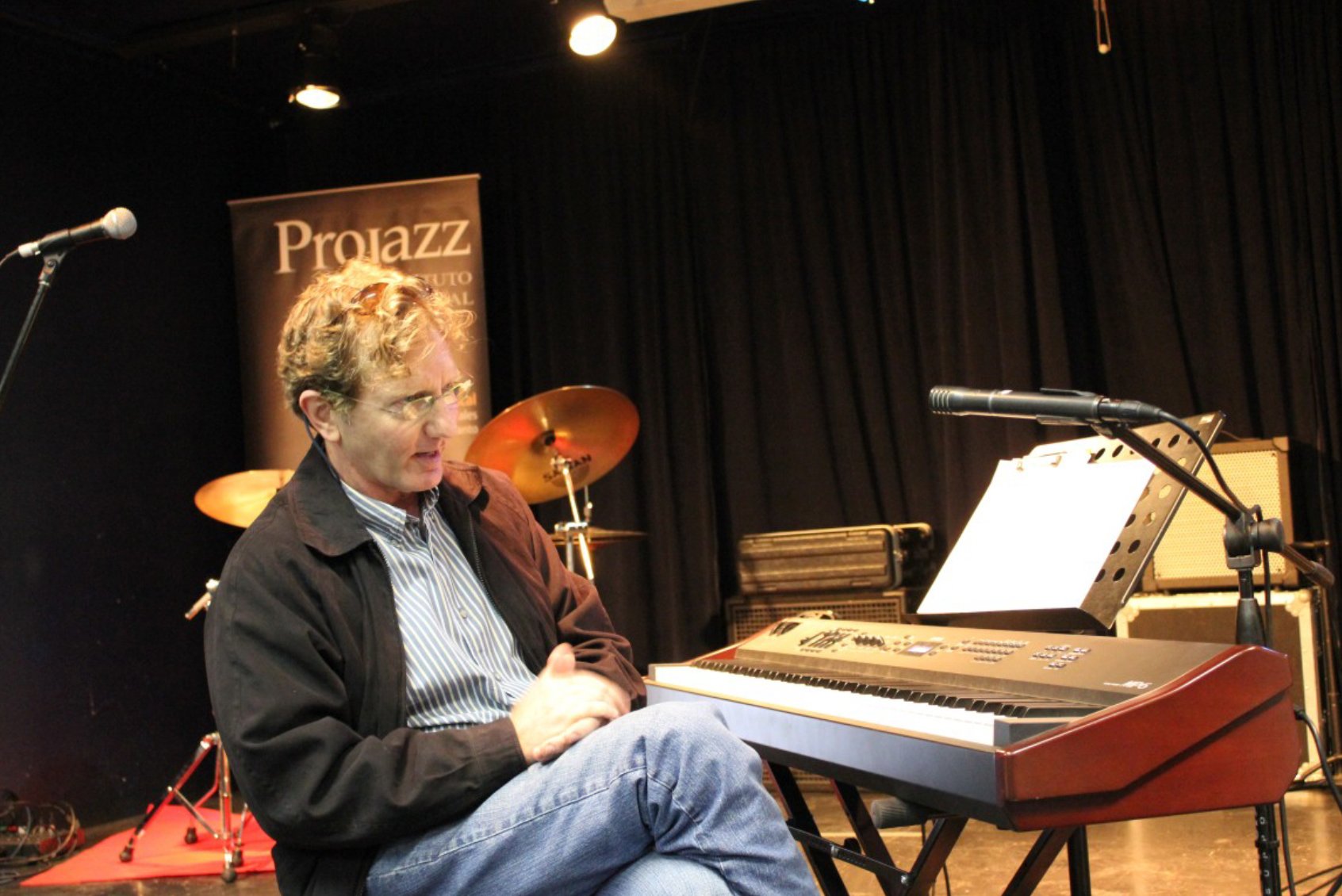

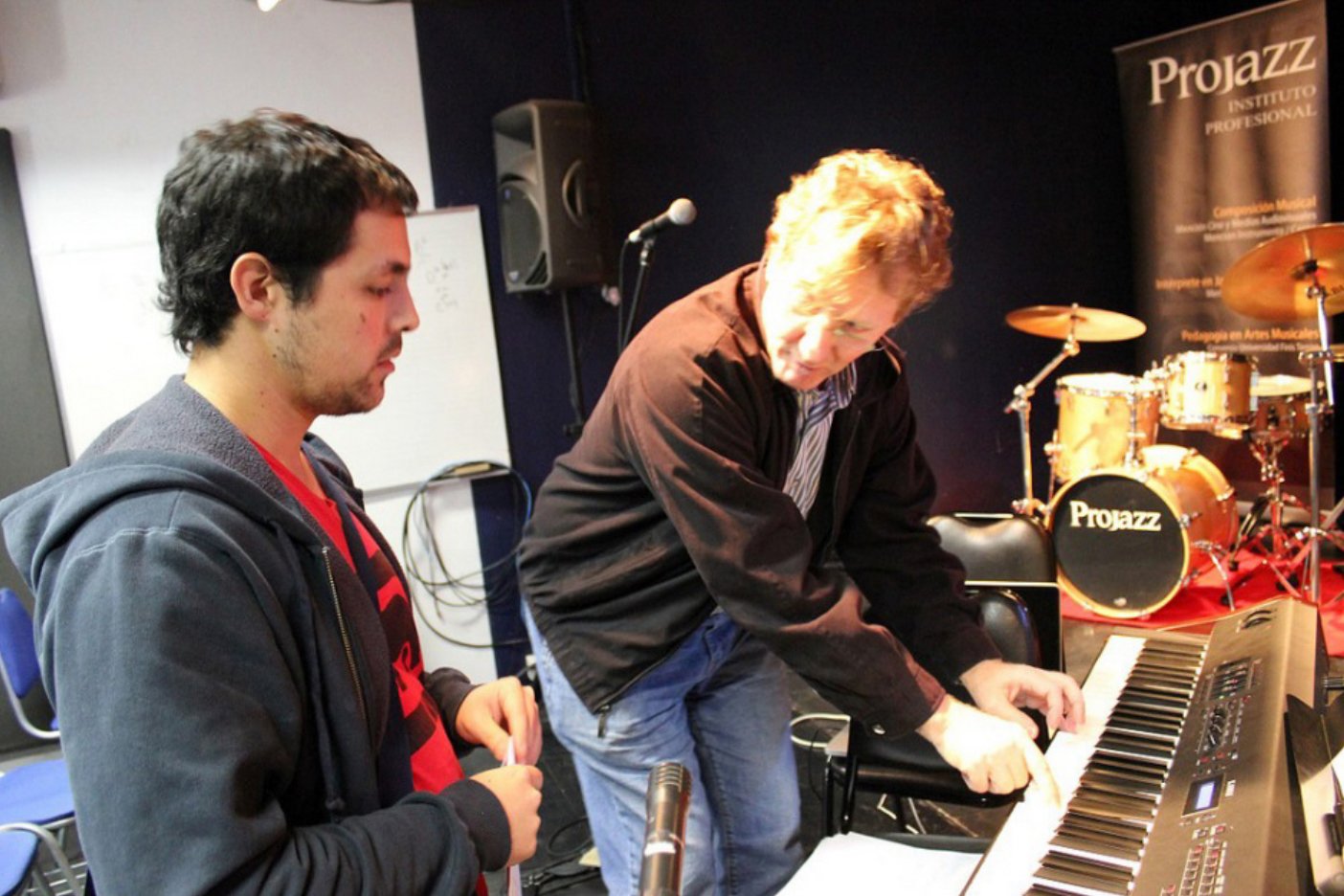
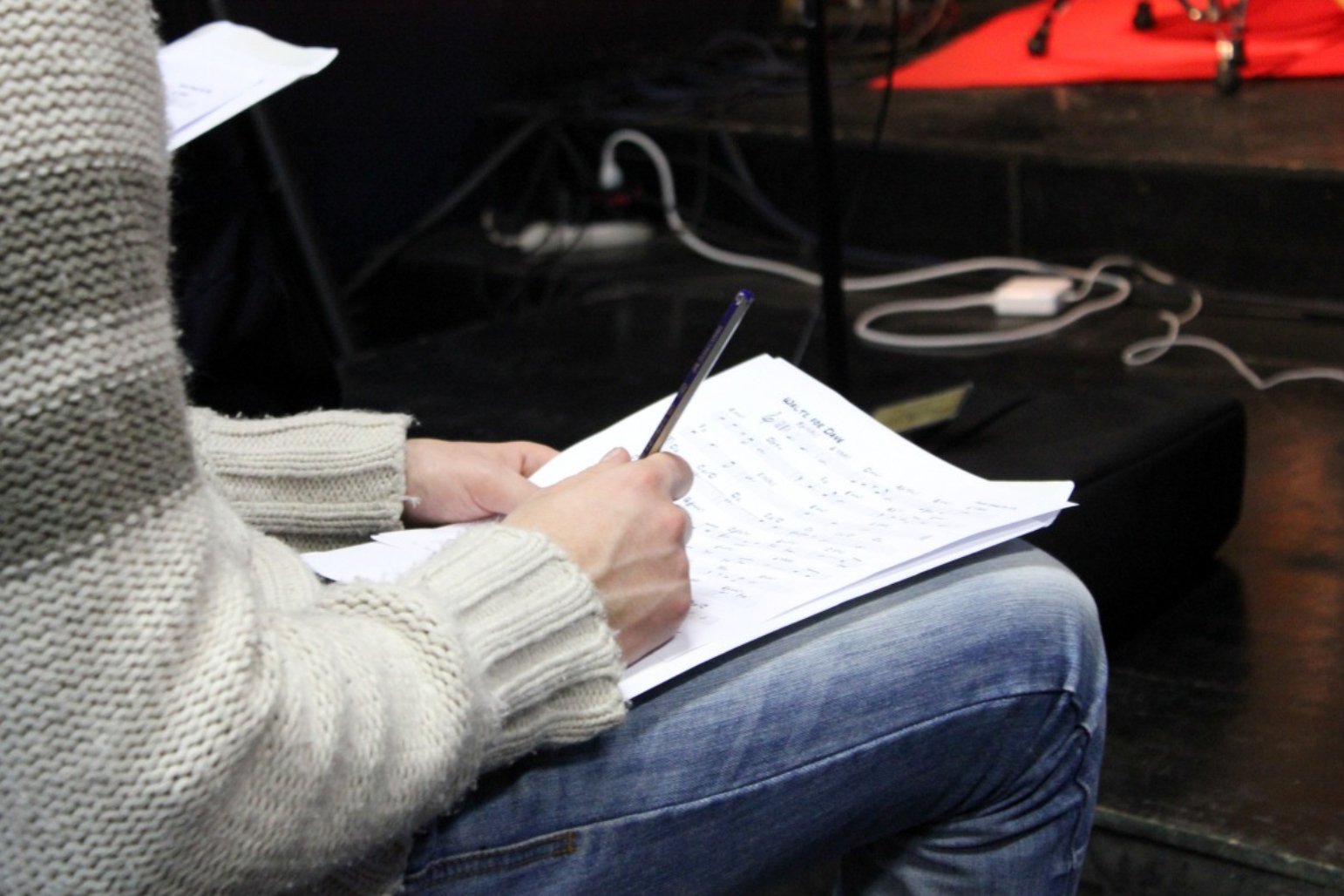

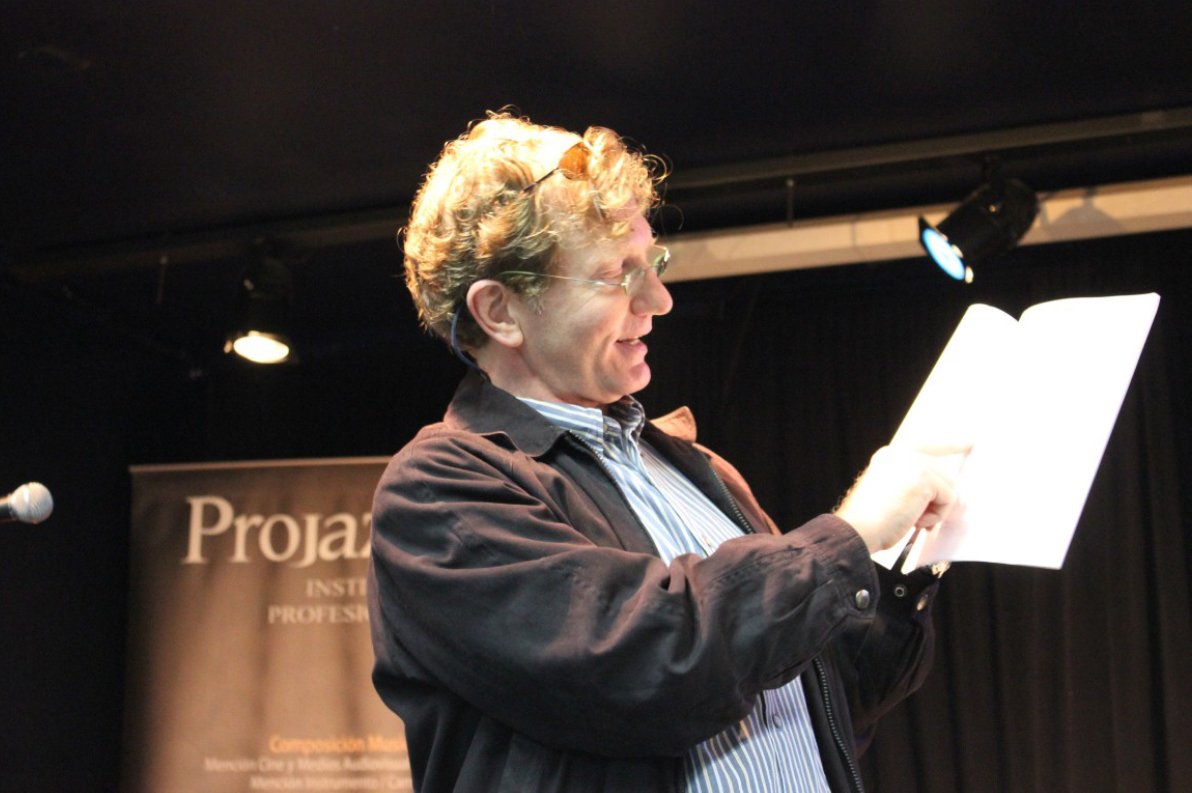
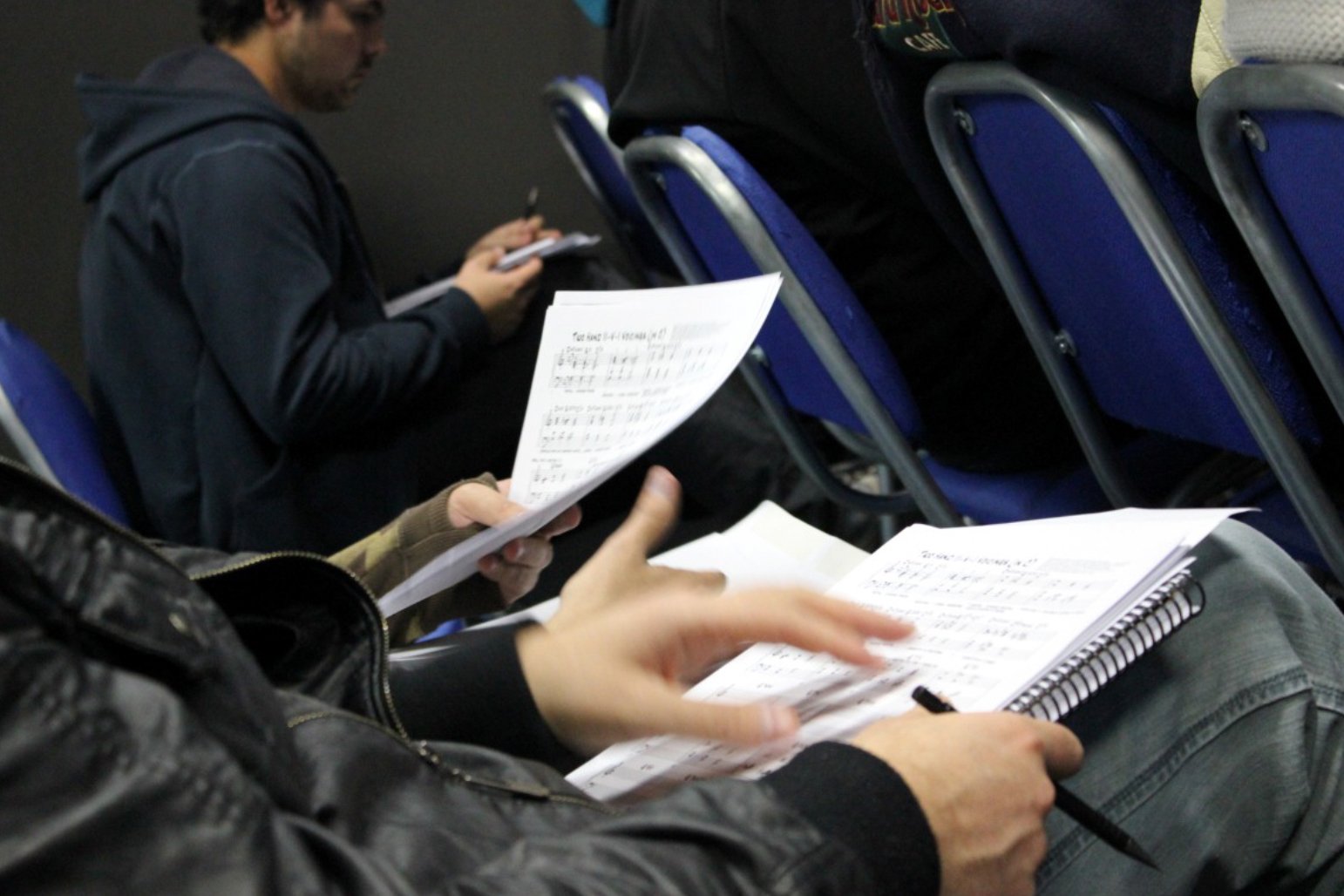


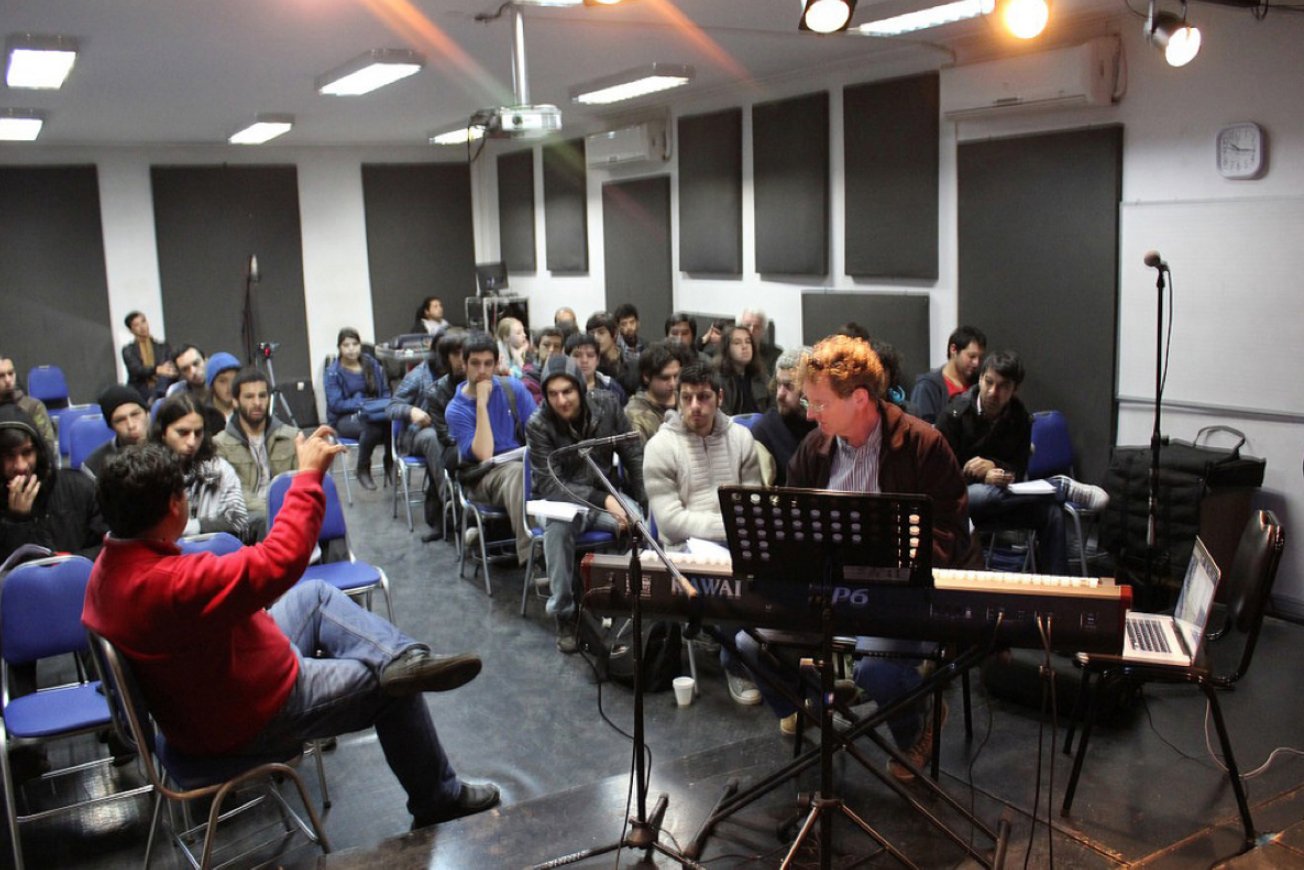

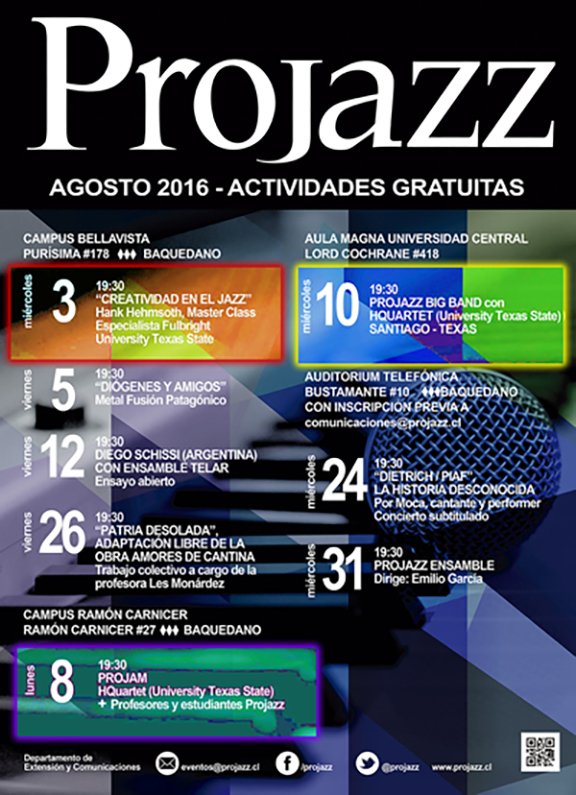










Reflections on Cultural Exchange
The students’ eagerness to learn reinforced an invaluable lesson: jazz is alive and thriving worldwide. Teaching jazz theory, performance, and practice methods from an American perspective left a lasting impact—not only on the students but also on me. Music, I realized, is a universal language that unites people across borders.
A Personal Note
My time in Chile was a profound reminder of the value of cultural exchange. Whether mentoring students, performing concerts, or evaluating scholarship candidates, I felt the transformative potential of my Fulbright mission. It’s one of the best ways to share the richness of America’s artistic heritage with the world—and in return, discover the treasures other cultures have to offer.
Expanding the Backstory: My Fulbright Chile Journey
Santiago, Chile, with its picturesque backdrop of the Andes and its vibrant cultural heartbeat, became a transformative chapter in my journey as a Fulbright Senior Specialist. Teaching jazz at ProJazz Institute, the only accredited jazz degree-conferring school in South America, was an extraordinary opportunity to share not just the music, but the freedom and innovation at the heart of jazz as an American art form.
The seasons were flipped—winter in July—and the city experienced one of its colder spells. One memory that stands out is the power outage that plunged an entire city block into darkness for three days. Yet, even in the cold, I was warmed by the enthusiasm and resilience of the people I worked with.
My mission was to bring contemporary jazz to students eager for an American approach to harmony, improvisation, and bebop vocabulary. What struck me most was their thirst for knowledge—not just the mechanics of jazz, but the ethos of self-expression and creative freedom that defines it. For many, jazz was more than music; it was a window into a different way of thinking. I had the privilege of performing city-wide concerts alongside incredible colleagues like Russell Haight, creating workshops and clinics to inspire and equip the next generation of jazz musicians. The people of Santiago embraced jazz in a way that reminded me why it’s such a powerful cultural export. They absorbed bebop improvisation, translated jazz texts into Spanish, and explored how to present themselves as professional musicians on the global stage.
This experience paralleled another transformative chapter in my career—my work with the U.S. Army Bands as a Department of Defense trainer. In both settings, jazz became more than music; it became a symbol of democracy, individuality, and collaboration. Whether mentoring students in Chile or leading workshops with Army musicians, the message was the same: jazz is a universal language that transcends borders, fostering connection and mutual understanding.
To learn more about my work with the U.S. Army Bands, visit my Army Trainer page.
These opportunities, supported by the Fulbright Program and the U.S. Army, underscore the profound role that music plays in cultural diplomacy. Jazz resonates deeply as an American contribution to global culture, embodying the values of freedom, innovation, and creativity. Representing those values through teaching, performing, and mentoring has been both humbling and inspiring, reinforcing my belief in the enduring power of music to unite us all.
What Happens When Jazz Goes to Chile?
In this interview, I talk about my Fulbright trip to Santiago — teaching, playing, and trading musical stories with the talented musicians at the Pro Jazz Institute.
Fulbright Specialist Awards Ceremony
On February 4, 2016, I was honored by Dean of Fine Arts John Fleming at the Fulbright Specialist Awards Ceremony for my contributions to bringing contemporary jazz to students in Santiago, Chile. The mission was more than teaching harmony, improvisation, and bebop vocabulary—it was about sharing the ethos of self-expression and creative freedom that defines jazz.
What struck me most during this experience was the students' deep hunger for knowledge. For them, jazz represented not just a style of music, but a window into a new way of thinking. It became a powerful medium for exploring individuality and collaboration. Throughout city-wide performances, workshops, and clinics, my colleagues and I had the privilege of inspiring the next generation of musicians to embrace the global possibilities of jazz.
This profound experience paralleled my work with U.S. Army Bands as a Department of Defense trainer, where jazz again served as a symbol of democracy and connection. Whether in a classroom in Santiago or a military band rehearsal, the message was clear: jazz is a universal language that transcends cultural and national boundaries.
Supported by the Fulbright Program, these opportunities highlighted jazz as one of America’s most enduring cultural exports. It fosters understanding, celebrates individuality, and promotes collaboration. Representing these values through teaching and performance has been one of the most rewarding chapters of my career, reaffirming the extraordinary role music plays in building bridges and creating unity.
Hank Hehmsoth in conversation discussing the global impact of jazz and cultural diplomacy.
Dean of Fine Arts John Fleming presents the Award to Hank honoring his contributions to global jazz education and cultural diplomacy
Closeup of Hank Hehmsoth at the February 4, 2016 Fulbright Specialist Awards Ceremony




